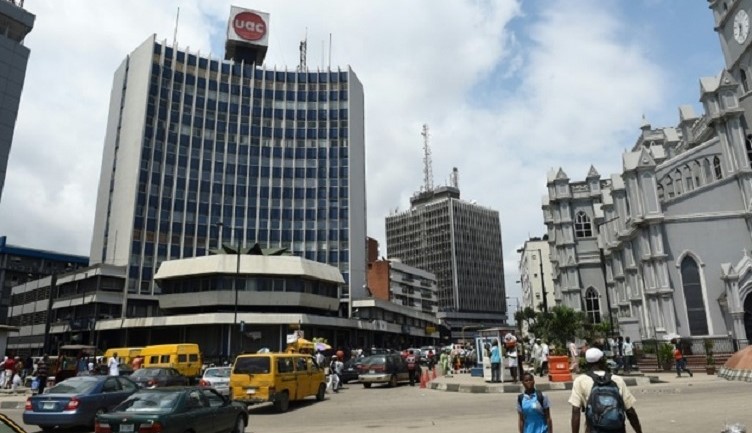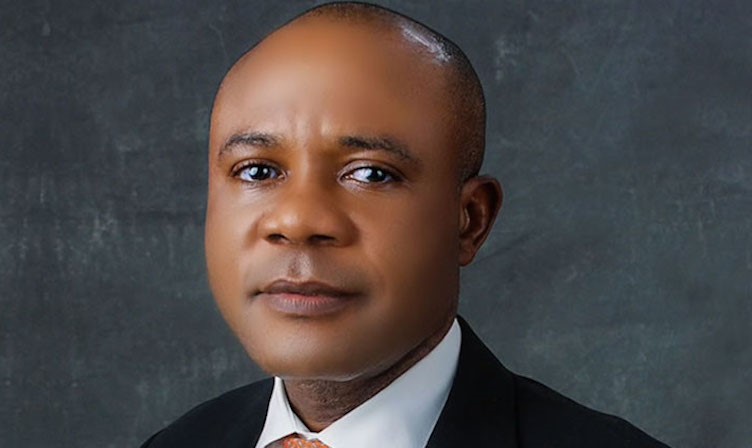BY ONOME AMUGE
Aquaculture, which in simple terms is the farming or selective production of aquatic organisms, has shown an increasing trend in recent years, spurred by the global fluctuation in capture fisheries, changing dietary patterns, and a significant rise in the demand among consumers globally.
According to a 2020 report by the United Nations Food and Agriculture Organisation (FAO), Egypt is the leading aquaculture producer in Africa, accounting for 71.1 percent of regional production, most of which takes place in the River Nile, the world’s longest river. Nigeria is ranked the second largest producer in the continent but with a comparatively smaller volume of regional production at below 20 percent.
Though aquaculture is yet to record tremendous growth in Africa, aquaculturists opine that investments in the sector have played a commendable role in curbing reliance on fish imports, and also served as an effective tool for economic development by helping to address food security and employment generation.
Over the years, the growing importance of the demand and consumption of aquaculture species, especially freshwater fish, has catalysed the gradual adoption of aquaculture. Such a situation has also spotlighted the considerable development of tilapia farming.
Tilapia is renowned as the second most cultured species globally and considered by experts as one of the notable value chains that Nigeria needs to explore in the aquaculture space. This is spurred by the fish’s high growth rate, disease resistance, relatively large body size, high survival capabilities under different farming systems and excellent breeding capabilities which makes it one of the most productive and internationally traded fish in the world. The economics (capital and operating cost) and ease of culture are also perceived to be low, making tilapia farming favourable for producers and investors alike.
Moreso, the growing health consciousness among consumers globally and demand for protein-rich diets has further triggered the demand for tilapia, making it one of the most consumed farmed fishes in the world as it contains Vitamin B, selenium, iron,Vitamin D and omega-3 fatty acids, basic requirements for a healthy lifestyle.
Findings by Research and Markets, the world’s largest market research store, showed that the worldwide tilapia market was $7.9 billion in 2020 and it is projected to reach $9.2 billion by 2027, underpinned by rising demand for the versatile fish and the expansion of the e-commerce industry which has also stimulated both industrial and small-scale production.
Data gleaned from the FAO also showed that 5.5 million tonnes of the 82.1 million metric tonnes of aquaculture food-fish production recorded in 2018 came from Tilapia.
On account of the aforementioned factors, IMARC Group, a leading market research company, noted that the market is anticipated to reach a volume of 7.9 million tonnes by 2024, growing at a compound annual growth rate (CAGR) of 3.7 percent between 2019-2024.
Despite tilapia’s remarkable market value, production is not all rosy as challenges such as uncontrolled reproduction, inadequate availability of quality fry, deterioration in seed quality, and limited technical knowledge among farming communities has dampened its commercial success to some extent in not only Nigeria, but also in China, Egypt, Indonesia, the Philippines, leading producers of the commodity.
To address poor productivity of tilapia and inadequate tilapia seed supply, WorldFish, an international nonprofit research institute that advances and translates scientific research on aquatic food systems into scalable solutions, collaborated with partners from the Philippines and Norway to produce genetically improved farmed tilapia (GIFT) deemed suitable for both small-scale and commercial aquaculture.
Under the GIFT project, WorldFish pioneered a systematic breeding protocol with the breeding of full sibling families that were grown in separate cloth net cages until big enough to be individually tagged with microchips, before stocking seed from other parents into a communal pond, with the performance of all fish being monitored individually. Fish from the best-performing families were selected as parents of the next GIFT generation.
Since the inception of the project in 1988, WorldFish has conducted over 28 years of selective GIFT breeding which have been adopted in Bangladesh, Brazil,China, Ghana, Egypt, the Philippines, Thailand, among other countries.
Citing assessments from countries where GIFT breeding was adopted, WorldFish identified improved productivity, increased rural income and employment and other socio economic benefits.
An Asian Development Bank (ADB) study disclosed that the economic internal rate of return on investments (ROI) in GIFT development and dissemination was over 70 percent over a period from 1988 to 2010, with an estimated net present value of $368 million.
WorldFish, in a 2017 study, also found that GIFT yields were significantly higher compared to non-GIFT yields, adding that GIFT species were more profitable and cost-effective,making them better alternatives in the global market.
WorldFish introduces GIFT to Nigeria
In March 2022, WorldFish announced an inclusive legal agreement with Premium Aquaculture Limited (PAL), the largest tilapia production company in Nigeria. The genetically improved farmed tilapia, according to the agreement, is aimed at boosting the productivity of the Nigerian tilapia fish markets by 2023.
Highlighting the benefits of transferring GIFT into Nigeria, the research and innovation institution stated that it would introduce a new domestic industry in Nigeria for tilapia farming, increase smallholder income and employment, deliver significant quantities of new fish products to narrow the fish supply-demand gap and lead to better nutrition and health among the Nigerian population.
Commenting on the agreement, Colin Shelley, WorldFish project leader for the Bill and Melinda Gates Project, remarked that it reflects WorldFish’s ambitions for future growth and investment in the African continent and its commitment to support small-scale aquaculture producers to chart their pathway out of poverty.
On his part, Sunil Siriwardena, WorldFish Nigeria country manager, explained that the development will provide the foundation for establishing a sustainable private sector-based GIFT seed and grow-out industry in Nigeria.
“This programme is designed to prepare and bio-securely transfer GIFT from Malaysia to Nigeria, establish a GIFT breeding population for disease-free broodstock/seed dissemination and create a healthy GIFT seed industry/business and GIFT-seed-based smallholder out-grower business/industry in Nigeria,” Siriwardena stated.
Based on the agreement, WorldFish stated that GIFT fry will be transferred from its headquarters in Malaysia to Premium Aquaculture Limited’s quarantine facility in Ogun State in May 2022.
FishNet Alliance, HOMEF oppose GIFT
However, FishNet Alliance, a network of fishers engaged in and promoting sustainable fishing in line with ecosystem limits, has offered resistance to the planned introduction of the genetically improved tilapia fish into Nigeria, arguing that GIFT is not a solution to the root cause of challenges in the fisheries sector, neither will it solve the hunger and malnutrition problems in the country.
The alliance further alleged that the improved variety was produced to suit industrial aquaculture models, while neglecting its ecological and environmental implications.
Stephen Oduware, the coordinator of the organisation, explained that while the implication of having genetically improved tilapia released into the wild is yet to be ascertained, research has shown that escapes from aquaculture facilities are common and could bring severe consequences to local fish populations. He further cautioned that the “artificial” species, if allowed into Nigeria, would crossbreed and eventually lead to the extinction of the natural variety thereby distorting the nation’s rich biodiversity.
Oduware highlighted pollution caused by oil and gas and other minerals exploration and exploitation; insecurity and piracy; illegal, unreported and unregulated fishing activities of national and international trawlers, as challenges affecting tilapia production in Nigeria, adding that they are important issues that the government needs to focus on resolving rather than adopting genetically improved farm tilapia.
Speaking in the same vein, Nnimmo Bassey, the director, Health of Mother Earth Foundation (HOMEF), noted that the Nigerian environment is already overwhelmed with many genetically engineered crops and products with controversial results.
Bassey, who wondered if Premium Aquaculture Limited consulted with stakeholders and consumers before signing the agreement with WorldFish, warned that the introduction of genetically improved tilapia may be a step towards the adoption of genetically engineered fish into the Nigerian environment.
The coalition, therefore, appealed to the federal government to withhold regulatory approvals for the release of the altered fish variety until the biosafety concerns around it were addressed and regulatory authorities strengthened.
The government was also advised against embracing novel varieties coming under the guise of philanthropy that may negatively affect the country’s food systems.
On his part, Akpos Ejumudo, chief executive officer, Goldfisher Innovations & Logistics Ltd, a tilapia fish production and consultancy firm based in Warri, Delta State, raised optimism that the introduction of improved varieties into the Nigerian tilapia industry would improve production.
Ejumudo however maintained that there are more important factors that need to be considered to ensure Nigeria produces the required quantity and quality that meets local demand and also, gain significant recognition in the global market.
The fishery expert opined that one of the most effective ways to encourage increased participation in tilapia farming is to ensure consistent and formulation of high-quality fish feed products at affordable rates.
According to Ejumodu, Nigeria can be at the forefront of commercial tilapia production if the local production system is improved with greater emphasis placed on establishing best-practices of quality standard.
He also enjoined the government, stakeholders and experts in the industry to implement new innovations, establish professional training for local farmers, support investors through funding opportunities, and intensify local research and technologies channelled towards improving production of the local species.
Doing these, he stated, would help to bring greater market credibility, improve margins, and ensure that a more consistent quality product is available.

